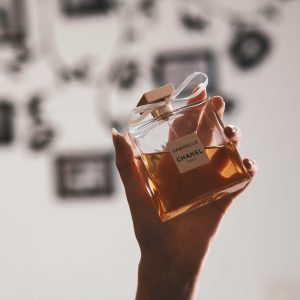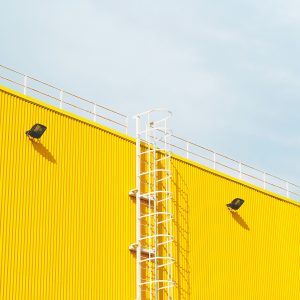Pvc Film Manufacturers and Their Products
Pvc film is a versatile, durable plastic material. It can be used in a variety of ways, including for insulation, furniture covers and flooring. It is also highly resistant to abrasion and chemicals.
The casting and calendering methods of manufacturing PVC films can produce different surface roughness. This can be identified by an optical profilometer, even in samples with the same chemical composition.
Thermoforming
Using thermoforming to create plastic parts can help companies save money by reducing shipping, freight and storage costs. It also allows companies to create products that are lighter than their metal or fiberglass counterparts. This can be a real boon for the environment, as less weight reduces fuel consumption.
Thermoforming is a process that heats a sheet of plastic and then applies it to a mold to shape it. This technique is ideal for creating complex shapes and a wide range of finishes. It can be used to make covers for medical equipment, housings for plasma and touch screens, and automotive parts such as dashboards and bumpers.
Manufacturer of clear and colored flex PVC film for laminating, mounting and digital imaging applications. Capabilities include conversion, slitting, RF heat sealing and welding, and a variety of roll widths and lengths. Products meet EU REACH, RoHS and U.S. CPSIA and other environmental regulations if needed. Made in the USA.
Calendered
Calendered vinyl is a popular choice for printing large, high-resolution graphics on a variety of surfaces. It’s especially well suited for point of purchase promotional Cutting Vinyl Rolls materials, such as window decals and banners. It also has many other applications, including vehicle graphics and trade show displays.
The calendering process uses heated metal rolls to squeeze a pre-compounded paste-like mass into a flat sheet. Each roll is hotter and faster than the previous one, and the result is a smooth, dense plastic film with a uniform thickness. This type of film can be made from a wide range of thermoplastics, including polyvinyl chloride (PVC), polyethylene and polypropylene.
The quality of calendered films depends on the plasticizer used in their formulation. This can range from a monomeric to polymeric plasticizer, with the latter classifying as a higher grade film. The addition of stabilizers is also important. Stabilizers retard degradation by tying up the hydrochloric acid generated by the heat of processing. This helps maintain the integrity of the film and prevents it from yellowing or losing its physical properties.
Cast
The escalating interest for clinical and drug bundling, which entails the use of PVC film, is one of the major considerations that will propel the development of the global market. Moreover, this technology allows for higher efficiency in product packaging. It also ensures the quality of the finished product.
Manufacturer of rigid, static cling and flexible vinyl films in rolls or sheets for thermoforming, die-cutting, gluing, welding, screen, offset and digital printing applications. Features include abrasion, tensile strength and tear resistance. Suitable for indoor and outdoor signage, furniture, office, industrial, graphics and decorative products and pool liner applications. Meets NFPA-701 fire ratings and OSHA standards.
Provides clear, opaque and weld screen plastic film in a variety of sizes, finishes and thicknesses. Features include matte, suede and taffeta textures as well as clay coated or bleached release liners. Available in a variety of color tints, UV stabilized and antistatic. Also offers slitting, interleaving and converting services.
Heat stabilizers
Heat stabilizers help prevent degradation of plastics during processing and pvc film manufacturers in applications. They can also help restore the performance of recycled materials. This technology is particularly beneficial for PVC, which is highly sensitive to thermal stress. In addition, it helps ensure the safety of medical and food products.
The most widely used type of heat stabilizer is tin-based. It is a combination of organotin salts and soaps and can be mixed with alkali or alkaline-earth metals such as calcium, zinc, magnesium, barium, and cadmium. Other organic compounds, such as phosphites and epoxides, can be added to the system for additional stability.
Duratarps is a custom manufacturer of flexible PVC film, tubing, sleeve and tape slitting and kitting. It offers a variety of custom services and on-time delivery. Its materials meet UL, CSA, RoHS, FDA and military specifications. It also has excellent abrasion resistance and is suitable for use in high-temperature applications. It is available in a wide range of thicknesses and colors. It is also easy to handle and has good flexibility. In addition, it can be cut and slit easily.
Chemical additives
Various chemical additives are available to enhance the performance of pvc film. They can provide better tensile strength, heat resistance, and dimensional stability. They can also help to improve the appearance and feel of the film. These additives can be used in a wide variety of applications, including food packaging, electrical and plumbing insulation, medical and laboratory supplies, and textiles.
The FTIR spectra of the PVC films prepared with different plasticizers are shown in Figure 1. Sample 2 produced with vegetable oil-based plasticizer showed a good plasticization efficiency comparable to DEHA, while sample 5 made with polyadipate showed less efficiency to interact with and to plasticize the PVC, probably because it has a complex chemical structure which promotes a greater distance between the chains [1].
A silane coupling agent was used as the additive. This product has the active ingredient KH550 and was purchased from Chenguang Coupling Co., China. The TG curves of the composite laminates were recorded under nitrogen atmosphere. The thermal degradation was divided into two major stages, starting at 25 °C and ending at 350 °C.



